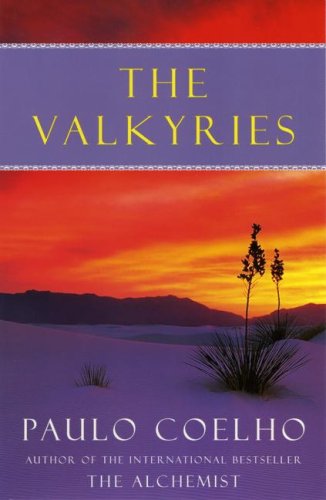“There are two types of writers: those who make you think and those who make you dream” says Brian Aldiss, who made me dream for such a long time with his science-fiction books. Thinking about his sentence and my work, I decided to write some columns on the subject. In principle I believe that every human being on this planet has at least one good story to tell his neighbor. What follows are my reflections on some important items in the process of creating a text.The reader
Above all else, the writer has to be a good reader. The kind that sticks to academic texts and does not read what others write (and here I’m not just talking about books but also blogs, newspaper columns and so on) will never know his own qualities and defects.
So, before starting anything, look for people who are interested in sharing their experience through words. I’m not saying: “look for other writers”. What I say is: find people with different skills, because writing is no different from any other activity that is done with enthusiasm.
Your allies will not necessarily be those that everyone looks on with admiration and says: “there’s nobody better”. It’s very much the opposite: it’s people who are not afraid of making mistakes, and yet they do make mistakes. That is why their work is not always recognized. But that’s the type of people who change the world, and after many a mistake they manage to get something right that will make all the difference in their community.
These are people who cannot sit around waiting for things to happen before they decide on the best way to narrate them: they decide as they act, even knowing that this can be very risky.
Living close to these people is important for writers, because they need to understand that before putting anything down on paper, they should be free enough to change direction as their imagination wanders. When a sentence comes to an end, the writer should tell himself: “while I was writing I traveled a long road. Now I can finish this paragraph in the full awareness that I have risked enough and given the best of myself.”
The best allies are those who don’t think like the others. That’s why, while you are looking for your companions (not always visible, because meetings between the reader and the writer are rare), trust your intuition and don’t pay any attention to others’ remarks. People always judge others using the model of their own limitations – and at times the opinion of the community is full of prejudices and fears.
Join those who have never said: “it’s finished, I have to stop here”. Because just as winter is followed by spring, nothing comes to an end: after reaching your objective, you have to start again, always using all that you have learnt on the way.
Join those who sing, tell stories, enjoy life and have happiness in their eyes. Because happiness is contagious and always manages to keep people from being paralyzed by depression, loneliness and troubles.
And tell your story, even if it’s only for your family to read.
The pen
All the energy of thinking is eventually shown in the nib of a pen. Of course, here we can substitute nib by ballpoint, computer keyboard, or pencil, but the nib of a pen is more romantic, don’t you think?
To get back to the theme: words eventually condense an idea. Paper is just a support for this idea. But the pen will always remain with you, and you must know how to use it.
Periods of inactivity are necessary – a pen that is always writing ends up losing the awareness of what it is doing. So let it rest whenever possible, and concern yourself with living and meeting your friends. When you return to the business of writing, you will find a happy pen with all its strength intact.
Pens have no conscience: they are an extension of the writer’s hand and desire. They serve to destroy reputations, make us dream, send news, trace pretty words of love. So always be clear about your intentions.
The hand is where all the muscles of the body, all the intentions of the person writing, all the effort to share what he feels, are concentrated. It is not just a part of his arm but an extension of his thought. Hold your pen with the same respect that a violinist has for his instrument.
The word
The word is the final intention of someone who wishes to share something with his neighbor.
William Blake said: all that we write is the fruit of memory or the unknown. If I can make a suggestion, respect the unknown and look there for your source of inspiration. The stories and facts remain the same, but when you open a door in your unconscious and let yourself be led by inspiration you will see that the way to describe what you have lived or dreamt is always far richer when your unconscious is guiding the pen.
Every word leaves a memory in your heart – and it the sum of these memories that form sentences, paragraphs, books.
Words are as flexible as the tip of your pen, and they understand the signs on the road. Sentences do not hesitate in changing course when they make a discovery, when they spot a better opportunity.
Words have the same quality as water: they go around rocks and adapt to the river bed, sometimes turning into a lake until the depression has filled up and they can continue their journey.
Because when words are written with feelings and the soul, they do not forget that their destination is the ocean of a text, and that sooner or later they have to arrive there.
(Ends next number)
http://www.paulocoelhoblog.com/warrioroflight/
http://www.warriorofthelight.com/engl/index.html

